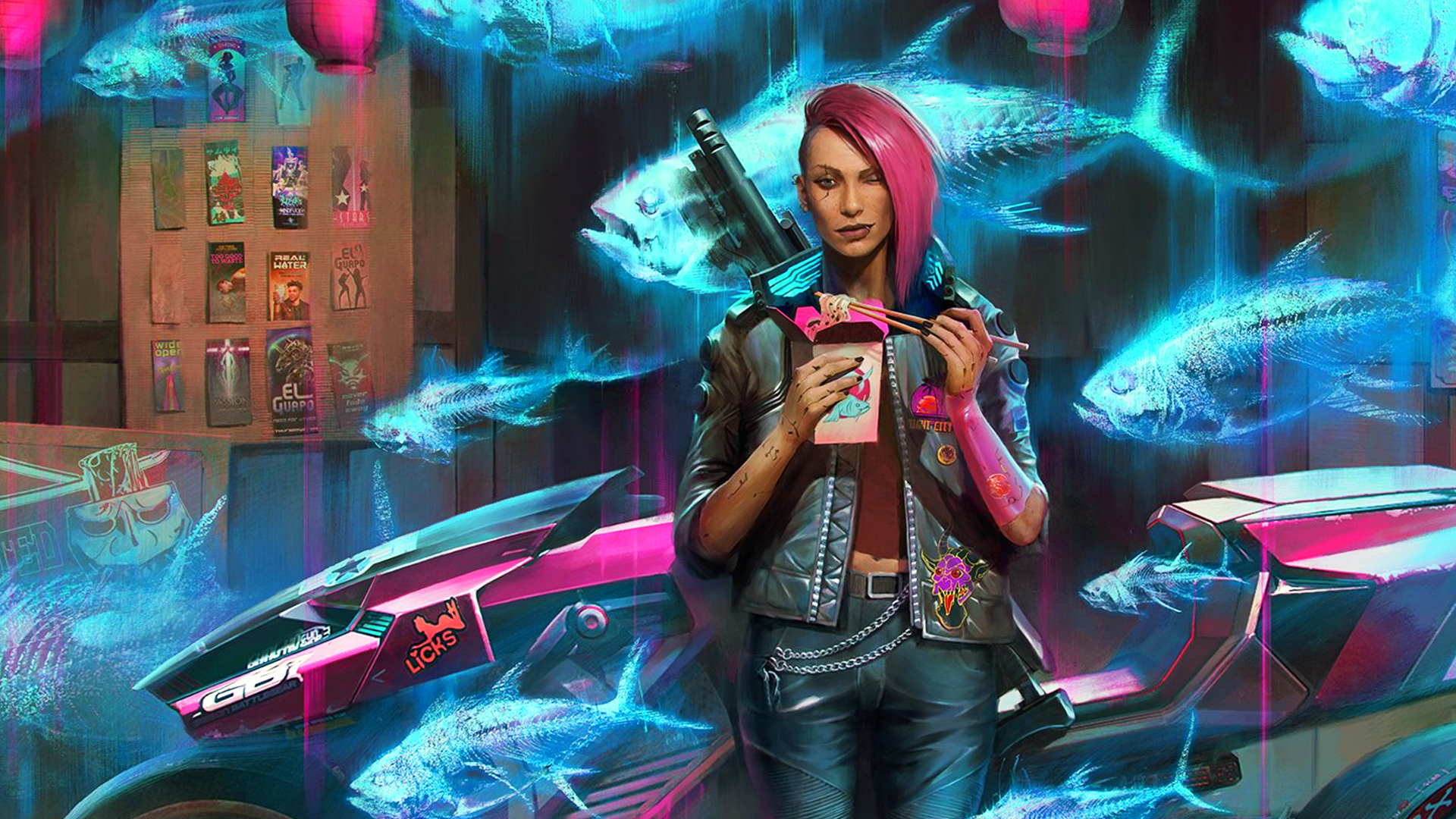Cyberpunk 2077 will get an in-game warning and 'permanent solution' for seizure triggers
A day after a report about possible seizure triggers in the game, CD Projekt said that it's 'exploring' solutions.

Keep up to date with the most important stories and the best deals, as picked by the PC Gamer team.
You are now subscribed
Your newsletter sign-up was successful
Want to add more newsletters?

Every Friday
GamesRadar+
Your weekly update on everything you could ever want to know about the games you already love, games we know you're going to love in the near future, and tales from the communities that surround them.

Every Thursday
GTA 6 O'clock
Our special GTA 6 newsletter, with breaking news, insider info, and rumor analysis from the award-winning GTA 6 O'clock experts.

Every Friday
Knowledge
From the creators of Edge: A weekly videogame industry newsletter with analysis from expert writers, guidance from professionals, and insight into what's on the horizon.

Every Thursday
The Setup
Hardware nerds unite, sign up to our free tech newsletter for a weekly digest of the hottest new tech, the latest gadgets on the test bench, and much more.

Every Wednesday
Switch 2 Spotlight
Sign up to our new Switch 2 newsletter, where we bring you the latest talking points on Nintendo's new console each week, bring you up to date on the news, and recommend what games to play.

Every Saturday
The Watchlist
Subscribe for a weekly digest of the movie and TV news that matters, direct to your inbox. From first-look trailers, interviews, reviews and explainers, we've got you covered.

Once a month
SFX
Get sneak previews, exclusive competitions and details of special events each month!
Update: In response to a Game Informer report about the presence of possible seizure triggers in Cyberpunk 2077, CD Projekt has said that it will add a separate warning about the sequence in the game and is looking into "a more permanent solution" to the problem.
The studio didn't say anything about what those solutions might be—removing the segment, adding a toggle toggle to disable it, or something else entirely—nor did it address questions about how the sequence came to be in the game in the first place. A studio rep declined to comment on the matter further, but promised that more information will be announced "the moment we have more details."
Thank you for bringing this up. We’re working on adding a separate warning in the game, aside from the one that exists in the EULA (https://t.co/eXpPn73VSK). Regarding a more permanent solution, Dev team is currently exploring that and will be implementing it as soon as possible. https://t.co/lXFypnSit2December 8, 2020
Original story:
Cyberpunk 2077 contains certain visuals and patterns that can cause problems for people with epilepsy. Game Informer's Liana Ruppert has been playing and ended up writing a Cyberpunk 2077 Epileptic PSA about why she "suffered one major seizure and felt several moments where I was close to another one" during the game.
One aspect of the game that seems to be a particular problem is the Brain Dance sequences, which are similar to the IPS tests used to diagnose epilepsy. This was what triggered Ruppert's seizure. "The headset fits over both eyes and features a rapid onslaught of white and red blinking LEDs, much like the actual device neurologists use in real life to trigger a seizure when they need to trigger one for diagnosis purposes. If not modelled off of the IRL design, it's a very spot-on coincidence, and because of that this is one aspect that I would personally advise you to avoid altogether. When you notice the headset come into play, look away completely or close your eyes. This is a pattern of lights designed to trigger an epileptic episode and it very much did that in my own personal playthrough."
Ruppert's post details what triggered her seizure, parts of the game epileptic people might want to be wary of, and how she tweaked options to lessen certain stimuli. It's essential reading for anyone who might have similar issues.
We've contacted CD Projekt Red for comment, and will update with any response.
Keep up to date with the most important stories and the best deals, as picked by the PC Gamer team.

Rich is a games journalist with 15 years' experience, beginning his career on Edge magazine before working for a wide range of outlets, including Ars Technica, Eurogamer, GamesRadar+, Gamespot, the Guardian, IGN, the New Statesman, Polygon, and Vice. He was the editor of Kotaku UK, the UK arm of Kotaku, for three years before joining PC Gamer. He is the author of a Brief History of Video Games, a full history of the medium, which the Midwest Book Review described as "[a] must-read for serious minded game historians and curious video game connoisseurs alike."

